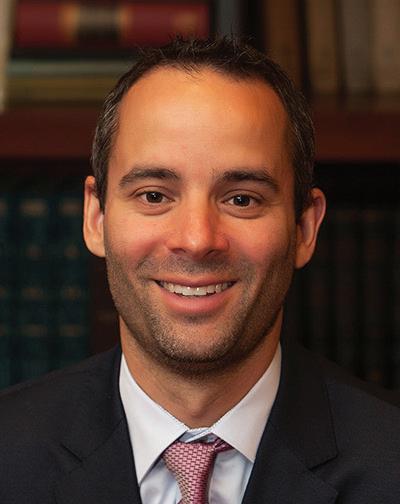business SPOTlight
brought to you in partnership with
BIRMIN GH A M
Top Journalist PHOTO CREDIT
Michigan native Rebecca Blumenstein rises to a new leadership role at the New York Times. ASHLEY ZLATOPOLSKY CONTRIBUTING WRITER
M
ichigan-born reporter and editor Rebecca Blumenstein is stepping into a new role. After a long and storied career in journalism that has taken her from Newsday to the Wall Street Journal, Blumenstein, who grew up in Essexville outside of Bay City, is transitioning into a top leadership position as deputy editor in the publisher’s office at the New York Times. Blumenstein, 54, of Maplewood, N.J., is a University of Michigan alumna and previously served as Michigan president of Young Judaea, a peer-led Zionist youth movement with programs throughout the U.S. Now, after four years at the Times growing their newsroom and coverage, Blumenstein is ready to embark on a new chapter. The Jewish News spoke to her about the transition, her goals in her new role and building a career at the historic publication. Can you tell us about your 2017 transition to the Times? My first job when I arrived at the Times was to reinvigorate and elevate our business
32
|
MAY 13 • 2021
coverage. The Times had a long tradition of great investigative business journalism, but it was not enough of a daily must-read. I hired Ellen Pollock, the former editor of Business Week, to be the business editor, and we significantly expanded our team, particularly in Silicon Valley and Washington. ‘Business’ is now one of the biggest staffs at the Times and because
live, continuously updated briefings during major news events. During the relentless news cycle of 2020, with the pandemic, the unrest following the death of George Floyd and the presidential election, I headed a major expansion of our live coverage. As a deputy managing editor, I am part of the masthead of the Times and weigh in on other
“WE FACE MANY CHALLENGES, ESPECIALLY HOW TO COVER A COUNTRY AS DIVIDED AS THE U.S. IS RIGHT NOW.” — REBECCA BLUMENSTEIN
of our traditional strength in politics, we are uniquely suited to cover the increasing number of stories and issues at the intersection of business and politics. From there, I took a role managing the digital news desk, which runs the website and NYT app 24/7 around the world. We saw historic gains in readership as we increased our news metabolism and launched more
issues facing the organization. I am also head of NYT’s events, which have completely shifted to remote formats during the pandemic, which has allowed us to reach bigger audiences than ever before. What are some memorable stories your newsroom has worked on during the past few years that you’re particularly
Rebecca Blumenstein
proud of? We have led the way in writing about how technology and the increasing influence of the tech giants is reshaping our world. From the sexual harassment issues at Uber under Travis Kalanick to the spread of misinformation, the Times is a leader in the highly competitive coverage of technology. During the election, we developed a feature called “Daily Distortions” that debunked highly misleading and viral information. Because of the Times’ authority on search, our reporting outranked that of the misinformation on issues like the incorrect reports of problems with Dominion voting machines. I’m also proud of our breaking news operation. We are aiming to be the most trustworthy destination for breaking news, and with a newsroom of 1,700 reporters and editors around the world, we can do more original reporting in more places than almost any other news organization. I must add that a story that is particularly memorable is a rare one that I wrote — a look at the changing politics
















